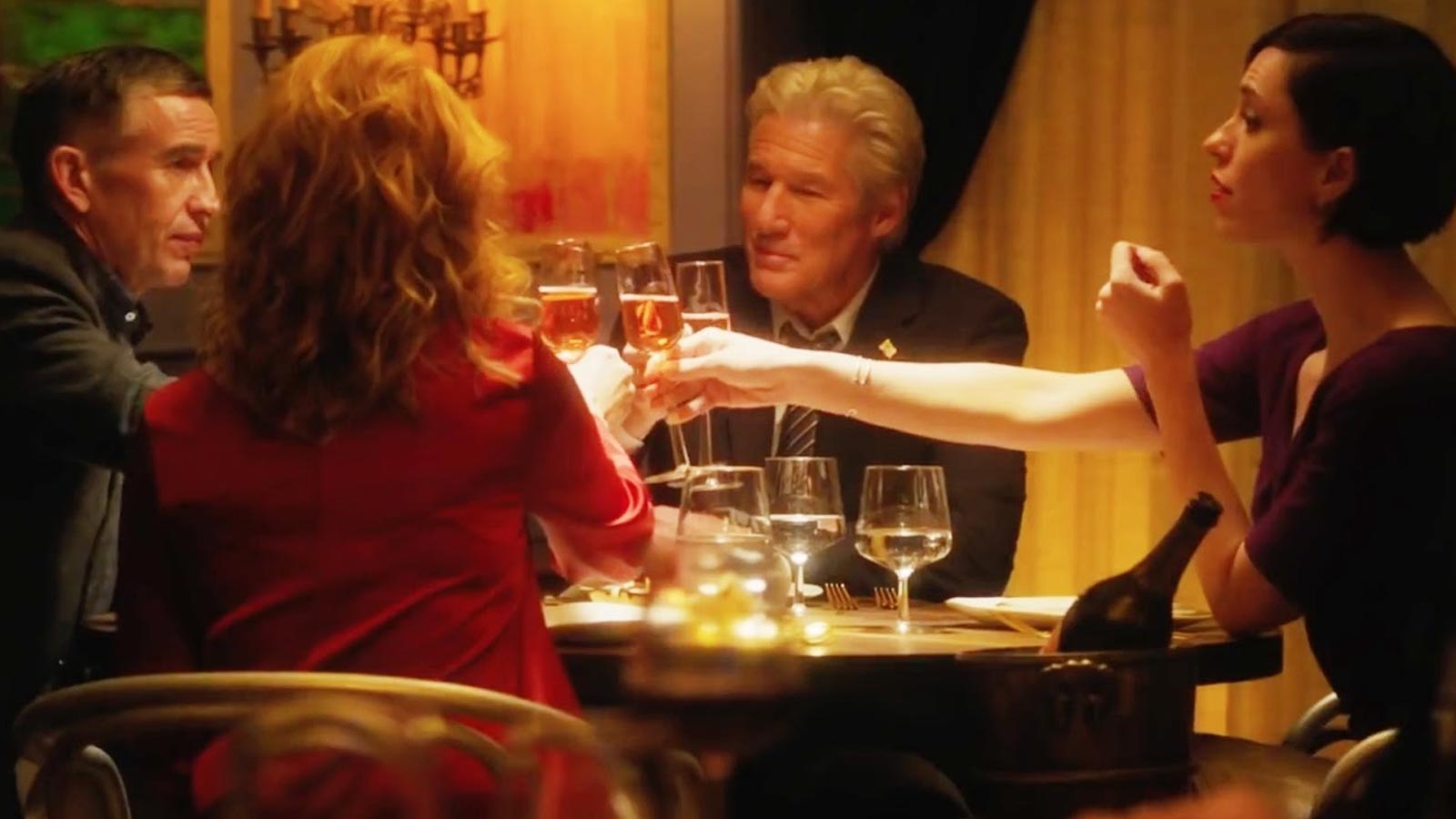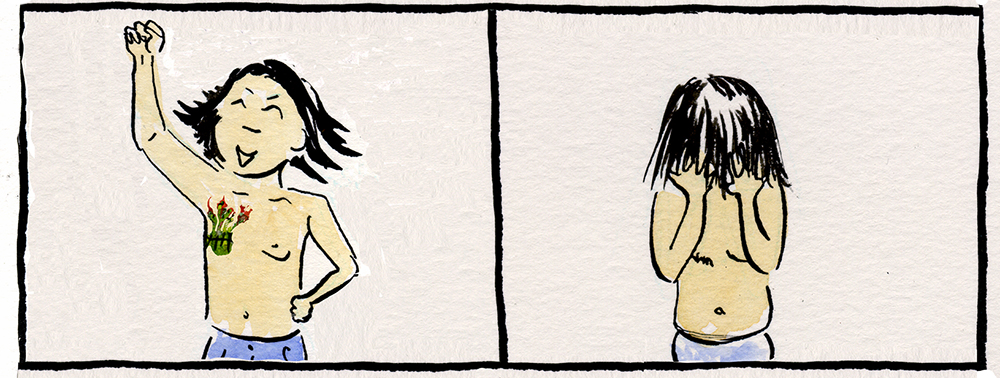interviews
In “Terrace Story,” a Closet Turns into Outdoor Space, But With a Cost
Hilary Leichter plumbs the emotional depths of city apartment spaces as an allegory for grief and loss

Reading Terrace Story is finding yourself delighted to be in the fairytale, even when you know the witch is coming for you. Charming and devastating in equal measure, this slim trickster novel asks questions of loneliness, enduring connection, and the multiplicity of self. Hilary Leichter, author of Temporary, plays with genre and form in this second book, leaping from a cramped city apartment, to stories of kings and queens and hermits, to “the tip of a [space] hub that keeps the suburbs in orbit.” Chapters feel like tessellations and plot arises as thought experiment, asking, How do we make space for one another?
In this novel, a house is too big and then too small. A cup doubles in size, and then a street, and then a national park. Two estranged sisters are kept apart by two worlds. People do the same verb over and over again until the end of time. Death is a fog over everything: a woman loses her family even though they’re only feet apart; a man wins his own death, fair and square. Parents “look absurd but also amazing.” An astronomer gives marital advice (“Beyond this, nothing.”). And Stephanie, one of the novel’s main characters, and certainly the one who takes over most of its pages, creates new space just by thinking about it. The strange ability starts in infancy, but it takes on darker, more sinister shades after she loses her sister.
Stephanie, “forever out of step with the whole world,” finds herself often alone, friendless and abandoned by her parents. Her magic, like Rumpelstiltskin’s, is one that takes even as it gives—and all is taken, not just from those who receive, but from the giver, too. Witnessing how the gift can become a curse, not just for Stephanie but for those close to her, one recalls Kierkegaard’s yawning abyss. Yet, there is so much joy in Leichter’s pages—and beauty, which settles in the chest, “transitioning from something seen to something felt.” We’re reminded that, whatever has befallen us, we can start over. The human experience, Leichter contends, is a weird, warped, malleable one—and often we are what is being remade.
Annie Liontas: Why do we need the trickster novel? What does it tell us about who we are and where we’re going?
Hilary Leichter: Trickster novels are the opposite of narrative manipulation, because the worst feeling—the thing I hate the most when I’m reading—is I can feel the emotions being pulled out of me. Paradoxically, the dishonesty of being a trickster on the page actually has a kind of truth to it that I’m interested in. The additional layers of misdirection and play perhaps call attention to the misdirection inherent in any narrative, even the ones that claim a kind of unimpeachable veracity.
What I’m most interested in is the kind of active engagement that allows a book not only to become a book that I’ve read, but an event in my life that I’ve experienced. For me, that’s only possible when the book requires something of me, and that’s risky because a lot of people read so nothing is required of them. But I want something to be required of me, I want to be an active participant in the text. With a trickster novel, you’re moving through a world that is closing and opening itself to you at various intervals. There are things there that can’t be seen until the end. There are things that can’t be experienced until the middle. And hopefully it’s something that expands in scope on a second reading. That feels honest, the way a text changes as we approach it again and again.
AL: How are time and grief tricksters?
HL: Time is one of my obsessions in writing. I teach a class on time travel and the uses of time in fiction at Columbia. It’s something that was constantly on my mind when I was writing my first book to a lesser extent, but Terrace Story for sure. Time is the unsung tool of the fiction toolbox. It’s this intersection where a reader, a writer, and a character can meet. It’s about the time that it takes you to read something versus the time that it takes a character to experience something versus the time that it takes me to write that thing. It’s this point of connection that is fascinating to me. And in writing about a terrace that appears and disappears, about space that appears and disappears, it felt only natural that time should collapse and expand, too.
Time is the unsung tool of the fiction toolbox.
Grief made its way into the novel without my permission. The book started as a short story I wrote in 2017, and it was published in 2020—and by then the world had changed profoundly. The story became something else. There was a communal grief that we were all experiencing, and then there was personal grief, too. I was thinking about people I had lost, and not just lost due to death but lost in the way that you lose people over time—that particular kind of pain of losing someone without them being gone.
AL: We follow two couples, Annie and Edward and Lydia and George, witnessing the forces that bring them together and pull them apart—sometimes, forever. Yet we sense that love in Terrace Story is enduring, even timeless. Is love to be trusted? Is it the only thing to be trusted?
HL: I don’t know that love is the only thing that can be trusted, but it’s something that’s worth sticking around to explore. It’s something worth finding out about. Love can be incredibly painful, and it’s not always worth it if the way we measure worth is by how much love we have in the end. The characters are wrestling with that conundrum—”I know I could lose everything, but I still want to feel this way.” And that’s beautiful to me, especially at a time when I think so many of us are thinking about what it means to continue existing in the world in this period that feels like a steep decline—what it means to continue loving, to continue bringing life into this world, and to continue choosing that way of living.
AL: Do you think it’s worth it for Annie?
HL: I do. You know, there’s this moment where she’s having a conversation with someone toward the end of the book at a time in the near or maybe not so near future, when there’s not much left of the world. There’s a system in place to preserve information and to preserve knowledge and to preserve experiences, and Annie asks this person, “Well, are you collecting information or are you collecting love?” And she goes on to say that there can be love even when someone is alone. Annie is someone who is very much alone for much of the book, but I think she still believes that love is not necessarily dependent on the presence of others. It’s something that can exist beyond life. And grief is an expression of that.
AL: We learn that Stephanie, who is at the heart of this novel, can create new space. This uncanny ability, however, cannot save her from a lifetime of grief. After she loses her sister, we see that this ability to make space out of nothing only brings distance between herself and others. How do both the reader and Stephanie grapple with this isolation and pain?
The world feels like an equation that doesn’t add up sometimes.
HL: The problem of space was a huge question for me in writing this book, because it’s about a couple living in an apartment with limited space, and then suddenly one day they have more of it. But then it became a question of, How do you experience space as a reader? How do you feel something is large or something is cramped when you’re reading a book. How do you feel empty or full? And so space was not only a physical problem, but an emotional one too—the idea of feeling vastness or looking at the night sky and feeling a sense of wonder, which can leave you feeling full or feeling claustrophobic. I was looking at how these emotions overlap with the physical constraints around the characters, but I was also thinking about how the reader would be able to feel the world getting bigger or smaller in the book. That was important to me. I didn’t want to use visual tricks like having the text run around the edge of the page because, while that’s really fun and I enjoy when books do that, I don’t think that’s how we experience space. I don’t think that makes you feel the depth or the limitlessness of something.
I also had questions about how we actually make room for other people in our lives. You hear people use the expression making space or holding space for someone else. What does that actually mean? Does that bring you closer to other people or does it add more distance between us? Stephanie, she’s catastrophically alone. She has this ability to make the world bigger and it leaves her world smaller. I’m curious about those contradictions, all of the ways in which there’s such disgusting abundance in the world that we live in, and such incredible need. The world feels like an equation that doesn’t add up sometimes. And it certainly doesn’t add up for Stephanie.
AL: Still, there is something powerful about making space, especially in a world where women aren’t supposed to take up any let alone claim it. How are you thinking about that as an act of power for Stephanie?
HL: Other women in the book find ways to claim space or take up space or even steal space or make room for the people around them—but Stephanie can do a little bit more. She can go beyond the limits of what people normally can do. So there is a political weight to it. I wanted to write an anti-superhero story for her. What if you could do something extraordinary that could potentially make the world different and even better, and it left you completely misunderstood?
Do you think she’s powerful?
AL: I really do. I think the loss and isolation are proof of that.
HL: There’s a kind of “extraordinary skill-set” narrative that we’re all familiar with, but I love the idea of a “special power” just being a part of a character’s daily life and their world. Not all of us can make an imaginary terrace appear, but we can do things that no one else can see, and they remain unseen oftentimes forever. There are no Avengers that knock on the door asking you to join because of the incredible roast chicken that you make. But that’s fascinating to me, the small, extraordinary things that people are capable of that get lost when they’re gone.
AL: Characters like Annie and Lydia are plagued by self-doubt because they can’t trust their own senses. Stephanie hides what others, if they’re looking, can plainly see. How do perception and reality function in this novel?
HL: Perception is the thing that makes the world feel bigger or smaller, and it became clear to me that the main way to make the novel contract and expand was through shifts in perspective. I was trying to blur the lines between what’s real and what’s imagined and what’s inferred and what we accept as reality. I think my work gets pegged as surreal or fabulist, but I think of myself as a realist writer. Our understanding of reality and the largeness of that understanding is the thing that allows people to be believed. There’s this great Julio Cortázar quote that suggests a version of reality that is “more expansive, more elastic, one where everything fits.” That’s how I approached the world of this book. It’s not that it’s surreal, it’s just that the world is bigger than we have agreed on it being.
AL: What would you make space for, if you could?
HL: More books! More bookshelves! More art! More time! Space and time go hand in hand, and I think making space is often making time for other people and for yourself.









